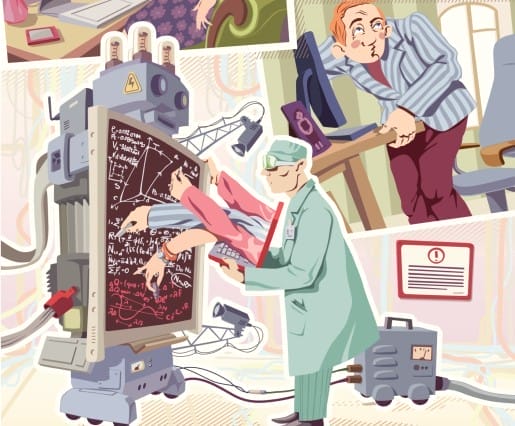While I was a Wharton entrepreneur earning my MBA, I founded four businesses—Hurt Technology Consulting, MBAZone, BodyMatrix and Coremetrics—until I was about to graduate.
I frequently worked through the night and fortunately was able to capture a little sleep, as most of my classes started late. In retrospect, this sounds insane. But I was driven by the passion to be an entrepreneur, and I have no regrets about that. Wharton turned out to be the perfect “entrepreneurial laboratory.”
Once I determined that Coremetrics was the business I had been looking for—a huge market opportunity and one that stoked my interests (which in hindsight is now obvious to me in my retail and programming background)—I sold my stake in the other three businesses as fast as possible and went after Coremetrics with all I had. Coremetrics wasn’t an easy journey, considering the dot-com boom and the subsequent dot-com collapse the business had to weather.
On campus today, Wharton entrepreneurs are supported more than ever. Since graduating, I’ve been back around eight times to serve as an Entrepreneur-in-Residence with Wharton Entrepreneurship. There are many entrepreneurs who are as driven as I was in 1997-1999 but with far more opportunities. Today, Wharton students have access to resources like the Penn Founders’ Club, where all Penn students are welcome as long as they are fervently working on a real business while they are in school, to Assistant Professor Tyler Wry’s MGMT 806 (Formation & Implementation of Entrepreneurial Ventures) course, where students work on real business plans.
Entrepreneurship is seen as cooler than it was before. Maybe it is because of the high unemployment rate. Maybe it is because of the financial crisis, where the banking industry both shed jobs and lost some of its luster as it almost tanked the world economy. Maybe this is because of how much entrepreneurial know-how has been developed among the Wharton alumni and faculty.
I believe it is a combination of all of these, and more.

Prof. Tyler Wry
Whatever the ingredients are, it is energizing. During my last visit, I spoke to Tyler’s class and to the Founders’ Club, and served as an Entrepreneur-in-Residence for two days. I met with both undergrads and MBAs. I was more impressed than I’ve been on any previous EIR visit. One of the students I met is both a brilliant programmer and artist. He’s already sold $65,000 of his own art while still in school. He’s 19 years old.
The finale for my visit was a Wharton Power Dinner. To my surprise, 250 students applied for the 12 spots to have dinner with me.
I remember when entrepreneurs like Farhad Mohit, WG’96, the founder of Bizrate and Shopzilla, came back to Wharton to speak with us about his first year post graduation as a ramen-noodle eating entrepreneur. I was one of only 12 students that went to see Farhad speak. It was a brilliant and raw talk. He had been living very lean but had finally just raised his Series-A round (he later sold the business to E. W. Scripps for $525 million). But there was little demand to see an entrepreneur like him speak during my time at Wharton.
And now 250 applications for 12 spots to have dinner with me?
Entrepreneurs are the job creators, and being around so many young and promising ones makes me bullish about the future. Wharton is the place to be for aspiring entrepreneurs today, and Joseph Wharton and Benjamin Franklin—both amazing entrepreneurs in their day—would be proud.
























